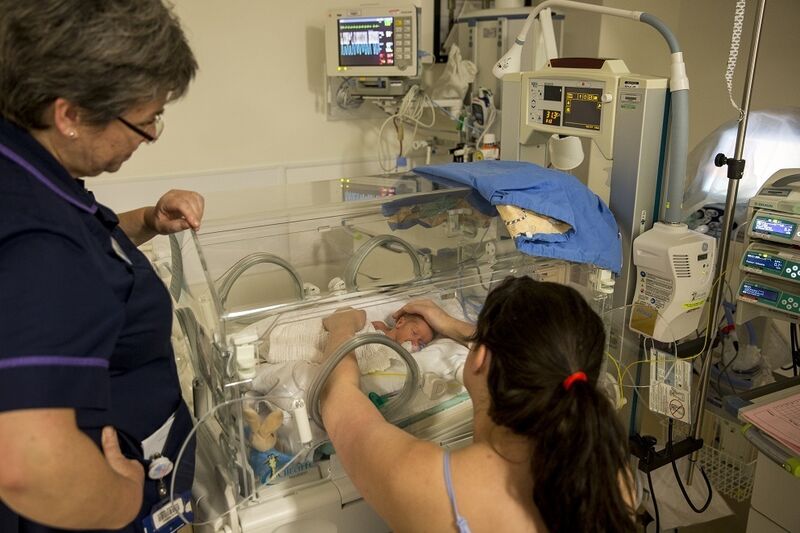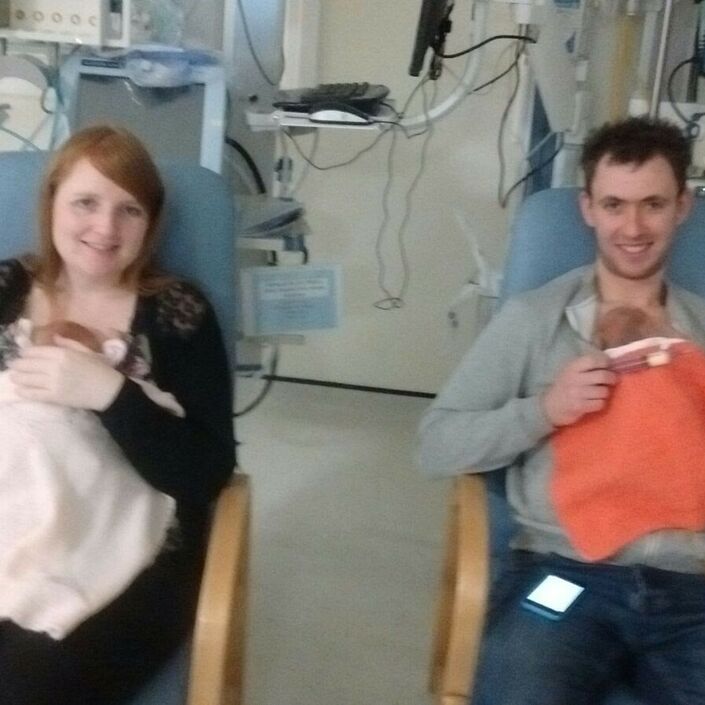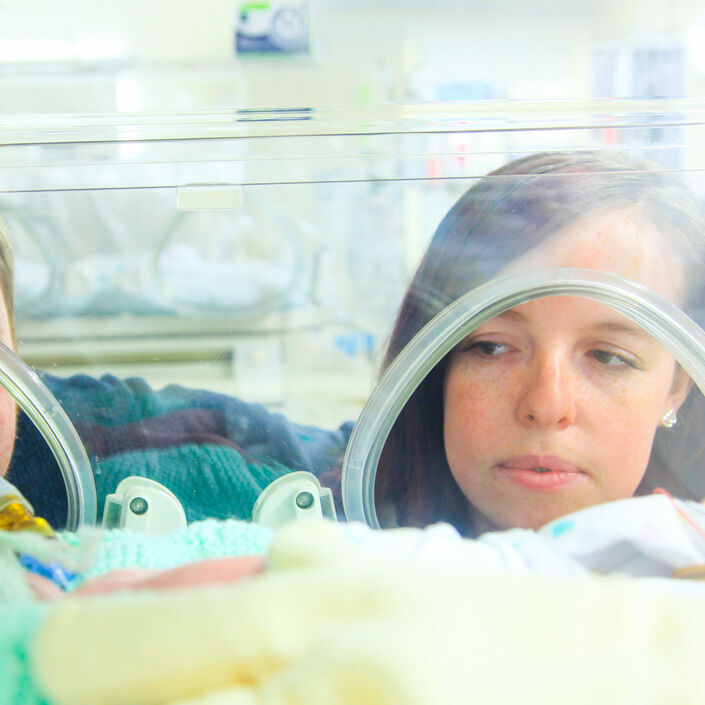Why is being aware of parents’ mental health so important in neonatal units?
As a health professional on a neonatal unit, a helpful starting point can be to recognise that many parents of premature or sick babies have had a traumatic birth experience, and the psychological impact of that may continue and be made worse by being on the neonatal unit.
Many neonatal units sadly do not have specialised mental health support in place. That’s why it is really important that healthcare professionals on a neonatal unit familiarise themselves with the symptoms of perinatal mental health problems.
Being able to recognise the symptoms of perinatal mental health problems can help staff tell the difference between normal psychological reactions that may require a ‘watch and wait’ approach, and more long-term or severe conditions which may need a referral for psychological assessment and treatment.
Best Beginnings provide information especially for health professionals on supporting parents with mental health issues. You could also think about attending a relevant ‘continuing professional development’ event to deepen their knowledge.
When meeting or talking to parents on the unit, remember to be kind and compassionate. Having a sick or premature baby is a traumatic experience and it is likely that they will be feeling overwhelmed.
Being by a cot side can be a frightening and lonely experience so whenever you do have the time, try to sit and spend some time talking to and building a relationship with them.
Even a few minutes can make a difference. Encourage the parent to look after themselves when they are away from the hospital by doing things they enjoy and seeing friends and family members.
What ‘warning signs’ can healthcare professionals look out for to know if a parent is struggling with their mental health?
Use your observational and listening skills to pick up how parents are feeling and coping. As health professionals you have invaluable experience of being with people; what are you hearing and seeing? What do you feel?
Listen carefully; parents may be subtly telling you they are struggling with their mental health but not want to tell you explicitly for fear for being judged a ‘bad parent’. Don’t necessarily take ‘I’m fine’ at face value; it’s always worth exploring a bit more.
Check if they are caring for themselves. Do they look well? Tired? Unkempt?
Notice how often they are visiting. If they come rarely, then it might be worth exploring why this is the case. It may be that it is a long way to travel or they have other childcare commitments, however it might also mean that they are avoiding coming in due to anxiety or the trauma of the experience. Similarly, if parents are there all the time, think about whether they are looking after themselves, and consider suggesting they get some rest. It could also be a sign of anxiety about leaving their baby.
Try to find out about any mental health history, what treatment they had (if any) and how they coped, in a sensitive and supportive way. Past mental health problems increase the risk of someone becoming unwell in the perinatal period.
Although uncommon, postpartum psychosis is a severe mental health condition that usually occurs in the first few weeks after giving birth and needs immediate psychiatric assessment and treatment. Learn about symptoms including hallucinations, delusions and mania, and always refer for the parent for immediate assessment if you have any concerns.
Be aware of any changes in parents’ mood, and their behaviour and interactions during the course of their time on the unit. Some parents’ reactions to the trauma of birth will transition over time, however if the symptoms appear to remain, for example, low in mood or anxious over a number of weeks, then this may indicate a more chronic problem.
If you think someone is struggling, discuss with the multidisciplinary team so that a support plan can be put in place whilst the baby is on the unit.
If appropriate, work with other professionals involved in their care – for example a social worker, midwife, or counsellor in order to create a support network around the family.
You might want to discuss referral to their GP or local perinatal mental health services if you think that they need more specialist input.
How can healthcare professionals support parents with their mental health?
Be kind and compassionate. This is one of the most terrifying and distressing things that can happen to a parent.
Smile when they come on to the unit – many parents have said that when staff don’t smile they assume that something is wrong with their baby.
Spend time with them, be with them (if you’re able to)– sitting next to the cot can be a lonely and frightening place.
Listen to them and answer their questions as best you can, and be patient if they need you to repeat anything.
If they are struggling, acknowledge their distress, try and normalise it as much as possible and ask what help they feel they need.
Let the Multi-Disciplinary Team know so they are aware of anyone who is struggling and can coordinate on-going support.
Involve them as much as you can in their baby’s care, help them feel like they are “being parents” and have some degree of control over what’s happening. Show parents this page, for ideas about how they can get involved.
Ask who is supporting them – are there friends and family around? If not, help them think about who might be able to offer support and develop a plan for when the baby is discharged.
Connect with other professionals involved in their care, for example case workers, counsellors, so there is a network of people aware that they are in need of support.
Find out what they are doing when they are not visiting the hospital. Encourage self-care, exercise, keeping up with things they enjoy, seeing friends and family.
Help them access useful resources and support organisations.
Refer to their GP
How can healthcare professionals take care of their own mental health?
Working in neonatal care will have an impact on your own mental health.
Here are some of Helen’s tips for taking care of yourself whilst on the unit:
Accept that this intense work with families will have an impact on you too – “You can’t walk in the rain without getting wet”
Learn about the psychological and physical signs of burn-out and secondary traumatic stress and stay alert for them
Develop a good support network, both professional and personal
Attend supervision, debriefing sessions, reflective practice, Schwartz Rounds etc, to understand more about the range of reactions that you may feel in response to clinical situations
Seek out further support from a counsellor, psychotherapist or occupational health professional if you feel this might be helpful
Always go for lunch, take your breaks, take annual leave
Look after yourself too – eat, sleep, exercise, see friends and family, and continue the things you enjoy
Take time off if you are unwell and ask to be signed off if your mental health is affecting your ability to work longer term.
Be kind to yourself, too.


